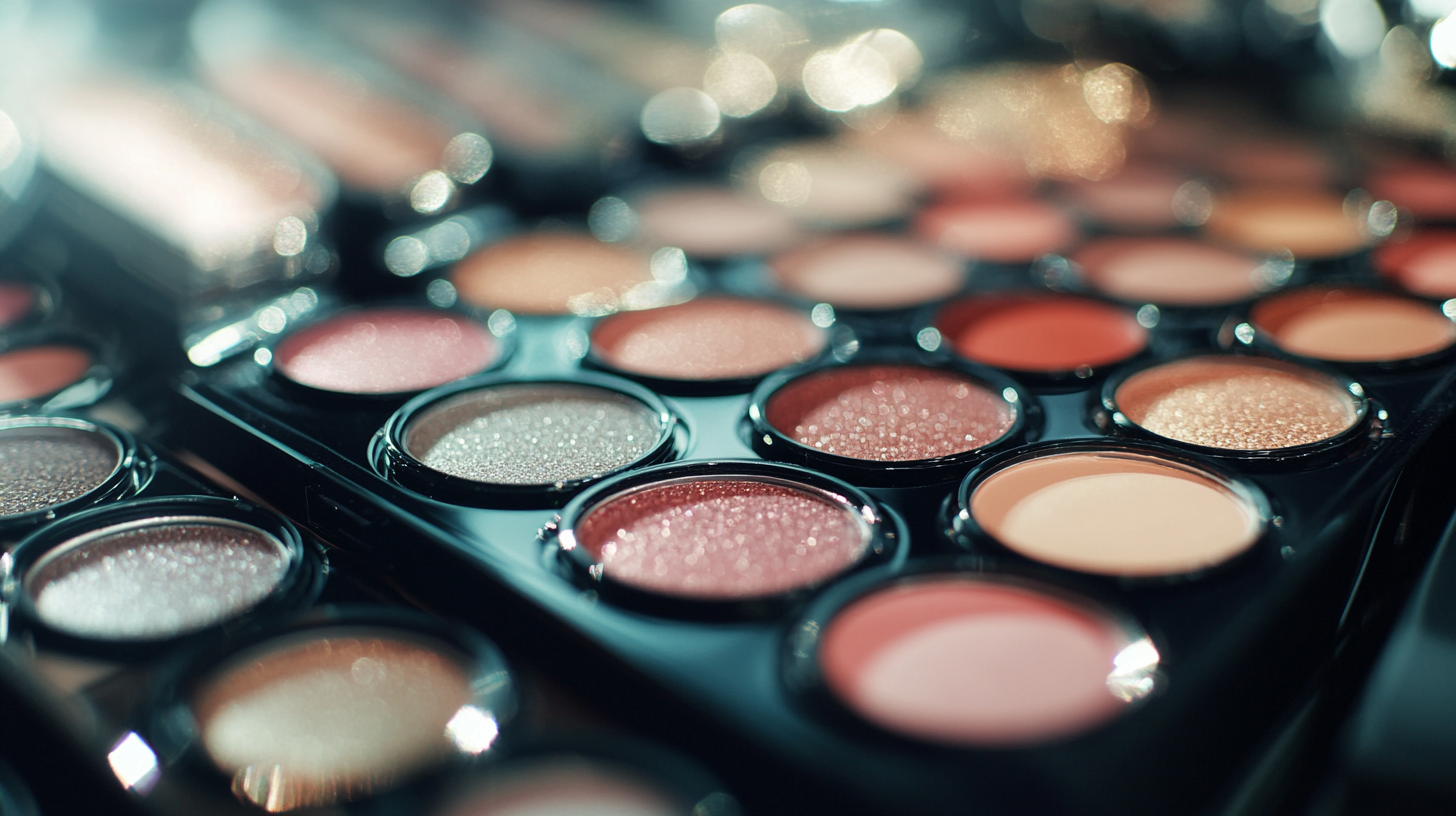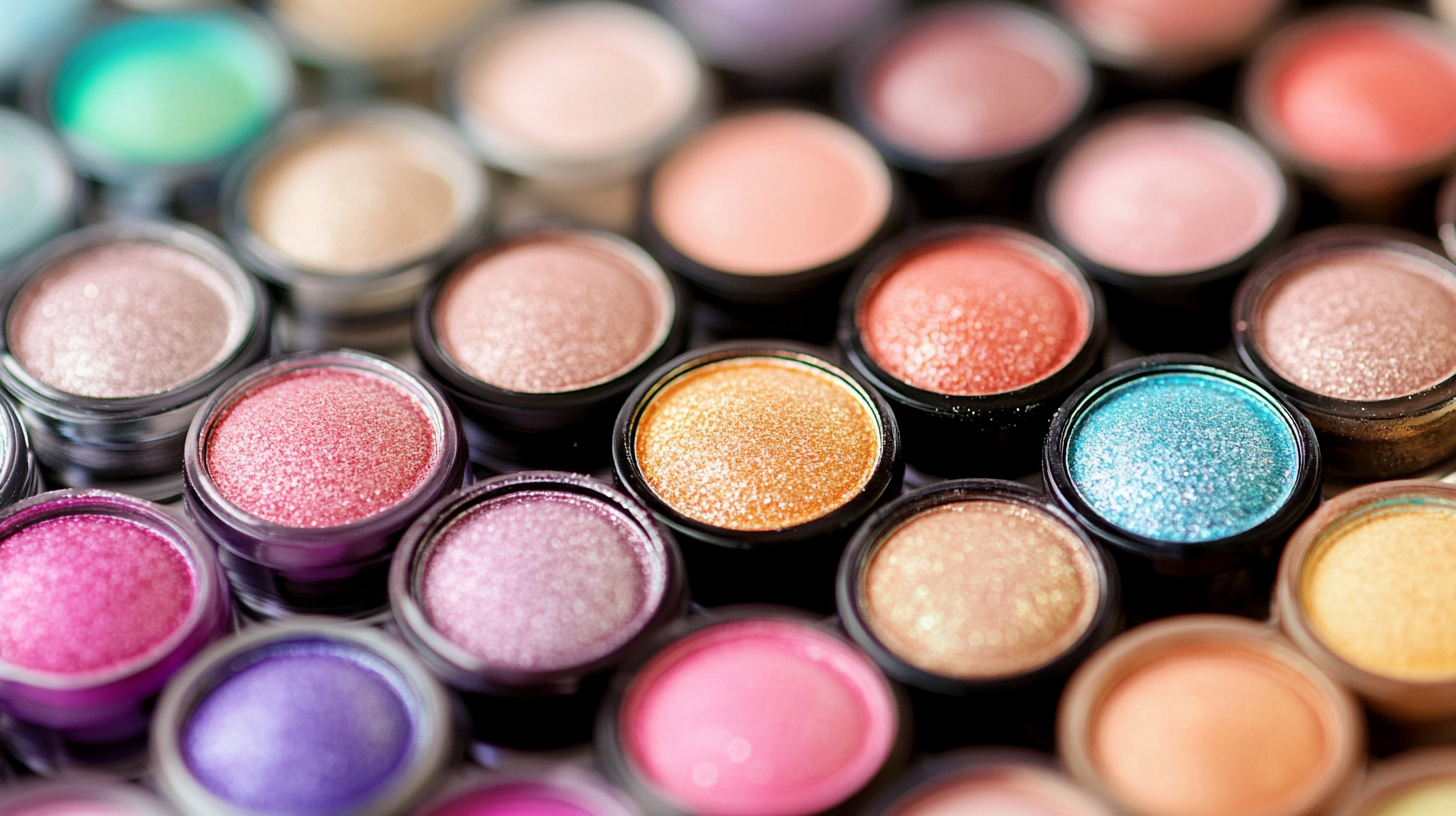
How to Identify Top Tier Skin Cosmetics Manufacturers for Global Sourcing
Skin cosmetics have turned out to be increasingly important in the ever-changing world of beauty and personal care to consumers looking for efficient and high-quality products. The need for advanced skincare products continues to grow worldwide, but it is important for businesses to identify the best manufacturers of skin cosmetics so that they can avail themselves of the best products in a cut-throat business environment. The right partnerships will not only enhance product portfolio development but also ensure that end-users get reliable, innovative, and safe skincare solutions.
As businesses navigate their way through such a complicated situation, it is even more crucial for them to know the any purchasing criteria that can distinguish popular manufacturers. For instance, from evaluating process quality assurance to sustainability practices, a holistic way of skin cosmetic sourcing may be required of companies. This blog intends to give insights and strategies for identification of superior manufacturers to businesses on informed decision-making that is in line with brand values and what consumers expect. This way, companies can tap into life for their product lines and create long-lasting success in the ever-changing global cosmetics market.

Understanding the Landscape of Skin Cosmetics Manufacturing
These have evolved over the last ten years owing to the behavioral changes people have adopted towards the use of cosmetics and innovations undertaken in the formulation of skin cosmetics. The market for skin cosmetics has been as the mostly booming market globally, expected to grow to $646.3 billion by 2025 and further expected to reach $855.3 billion by 2032, representing compound annual growth rates of 4.08%. The driving forces behind this trend are the increasing consumer awareness regarding skin health, a growing proliferation of online shopping, and increasing demand for organic and natural products. Identifying the best quality skin cosmetic manufacturers globally for sourcing is related to so many key factors-an important raw material: of high quality, it not only increases the efficacy of the product but also meets the preference of consumers in an emerging market such as that of clean and sustainable beauty. On the whole, manufacturers with a good supply chain and quality control are more likely to be a reliable sourcing option. Moreover, the location of the manufacturer would have an impact on the possible logistics and lead time. A case in point would be manufacturers situated in popular areas in the business of cosmetics, such as Europe and Asia; they would have very well-founded networks in terms of distribution, allowing quicker turnaround time. The assessment of certifications, production capacities, and conformance to new trends in the industry by these manufacturers is crucial in choosing a good partner. This is how brands can successfully position themselves in the dynamic skin cosmetics market.

Key Criteria for Selecting Quality Cosmetics Manufacturers
When it comes to placing orders from leading skin cosmetics manufacturers worldwide, four major parameters will dictate the selection process. Above all, what is most significant is the reputation of the manufacturer in the cosmetic industry. It is very important to do diligent research on those manufacturers that make a high-quality product using questionable ethical practices and may cause you to suffer. Certifiable testimonials are important to lend credence to their claims. This not only assures that you are working with bona fide organizations but also demonstrates a great resemblance to their concern for quality and safety standards.
Another crucial element is that the manufacturers must possess the versatility to remain ahead of market trends. The cosmetic industry is known for being so quickly fashionable that it adopts ever-changing consumer preferences and the latest advances in technology. Manufacturers putting their resources into research and development will create products that cater to new beauty requirements. Check for their production abilities, also in terms of scalability and lead time. Whether small batches for niche products or large outputs for general distribution, a manufacturer able to adapt to your demands will be fit for the job.
Yet another workhorse in determining the credibility of any source which might serve as the framework on which you can build your global cosmetics project is international regulatory compliance. Concrete knowledge of a manufacturer’s adherence to safety guidelines and quality control mechanisms would, even at first glance, mitigate dangers linked to product recalls or any possible legal problems with said product. Global sourcing entails entering regulatory landscapes dotted with variations; thus, being on oppositely-directed manufacturers from what should be classified as “wholesome behavior” will shield your brand reputation. By steering your senses along these avenues, you can pick companies that not only produce good products but also fit well into your business ideals and ends.

Evaluating Manufacturer Certifications and Compliance Standards
When one chooses the best manufacturers for skin cosmetics, it is paramount to look at manufacturer certifications and compliance with standards to ensure product quality and safety. A report by Grand View Research indicates that the global skin care market is expected to reach $183.03 billion by 2025, with consumers further increasing their demand for quality-compliant products. Therefore, in this industry, one would need to keep stringent certifications and regulations to survive in the competition.
One important certification to look at is ISO 22716, which outlines Good Manufacturing Practices (GMPs) for cosmetic products. This certification promotes the quality management systems put in place by manufacturers to cover all aspects of production, from raw material sourcing to packaging of the products. According to a study conducted by the Cosmetic Toiletry and Perfumery Association (CTPA), brands that use ISO-certified manufacturers tend to have higher consumer trust and satisfaction ratings, which are particularly salient in an industry where loyalty to a brand means everything.
Considering the mandatory compliance with local and international regulations in the procurement process, such as REACH (Registration, Evaluation, Authorisation and Restriction of Chemicals) in the European Union and the guidelines set by the U.S. FDA, potentially making a major difference, would also be very important. Such regulations are meant to ensure transparency for the manufacturer to divulge ingredients utilized and any possible negative ramifications on consumer health. According to a report from the International Trade Centre, that option emphasizes the importance of consideration for the choice of manufacturer fulfilling such standards, as companies focusing on compliance with the regulations in cosmetics invariably cut down product recalls by as much as 25 percent.
By giving importance to manufacturer certifications and compliance standards, the businesses lessen the downside and, in another way, create their mark in this competitive skin cosmetics world. With an increase in consumers' awareness of the safety of products, there arises a need for companies to synchronize their procurement model with stringent compliance standards so as to ensure the future of success in the worldwide market.

Importance of Transparency and Communication in Supplier Relationships
Being in the beauty industry with its myriad of skincare cosmetics, it is absolutely critical to have good relationships with suppliers. This partnership's transparency and communication cannot be overemphasized. When brands take time to build communication pathways with their manufacturers, they tend to be better equipped to deal with certain complexities of global sourcing. This mutual awareness of each other's expectations in terms of quality levels and timeline for delivery works towards improving the product.
Building trust through transparency opens doors for manufacturers to freely talk about production processes, raw material sources, and compliance with industry regulations. When brands understand the entire supply chain, they can make informed decisions about product formulation and marketing. Also, a few words back and forth can solve many problems, from fixing shipment delays to altering production according to consumer demands.
In addition, encouragement for communication creates a collaborative environment ripe for innovation, which is the very essence of success. Suppliers comfortable enough to share their ideas and know-how can ultimately help in growing unique formulation and product ideals into statements on market appeal. This partnership can also lead to enhanced feedback mechanisms whereby both partners can provide insights and suggestions for improvement; the result would be a far more agile and responsive supply chain that sits well with an extremely fluid consumer climate.
Strategies for Building Long-Term Partnerships with Manufacturers
It is imperative for long-term partnership building with skin cosmetic manufacturers to formulate a very viable supply chain for global businesses. One of the strategies to analyze here is going due diligence and research into the making. This means evaluating potential manufacturers not only based on their product quality but on other grounds such as reputation, industry standard compliance, or commitment to sustainability. Direct talks and visits to factories may give information about their operations and work culture, thus engendering trust and mutual understanding.
Another important feature that defines partnership success is effective communication. The parties will also be able to keep in touch regularly for updating information and feedback channels to address any concerns and keep pace with the market dynamics or changes. There has to be a well-defined and clear expectation on timelines for production, quality controls, payment terms, and other deliverables in the partnership. Another way of enriching the engagement is involving joint activities like developing and marketing products together.
Finally, nurturing that partnership by committing to a long-term collaboration, could create wonders because the returns would be significant. Companies should look at highlighting and rewarding manufacturers for their involvement, be it through loyalty incentives, volume commitments, or joint ventures. It makes the bond richer and motivates them to invest in better technologies and solutions, benefiting both companies in terms of future growth and market presence.
